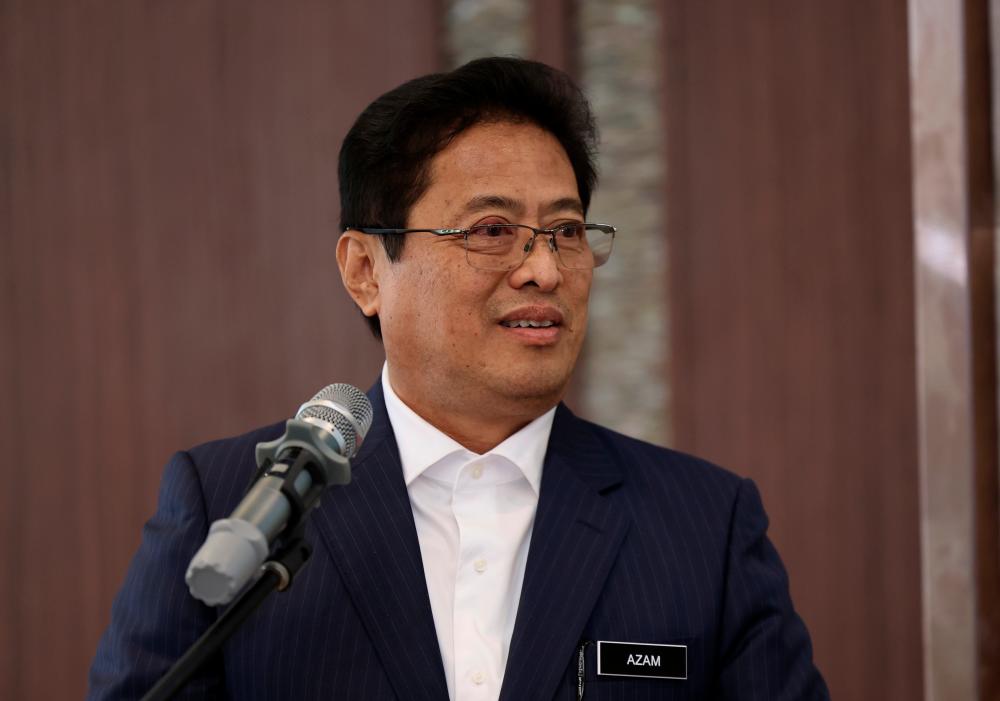PUTRAJAYA: The Malaysian Anti-Corruption Commission (MACC) is focusing on three key strategies under its operations and prevention sector in efforts to combat corruption involving public procurement, law enforcement, and grand corruption for this year, said its Chief Commissioner Tan Sri Azam Baki (pix).
Grand corruption refers to large-scale, high-profile corruption involving public interests.
“The strategies set the direction and goals for MACC in 2024 to fulfill its duty and responsibility in preventing leakages and increase the country’s revenues,” he said in the MACC Chief Commissioner’s 2024 Address distributed to the media today.
He said MACC is working on preventing leakages in the government’s procurement, ensuring that it follows laws and regulations, including tackling monopolies of projects (cartels) and abandoned or sick projects that cause significant losses to the government.
In terms of enforcement, Azam said MACC is focusing on busting cases perpetrated by syndicates, such as smuggling, human trafficking, foreign workers permits, and graft cases involving enforcement officers at the country’s gateways.
Cases involving government policies used to distribute public funds or special allocations to target groups, such as the Retirement Fund Inc (KWAP), the Social Security Organisation (Perkeso), and the National Entrepreneurial Group Economic Fund (Tekun Nasional) loan schemes, are also MACC’s focus, he said.
Azam said MACC would also concentrate on investigations related to government revenue collection and tax evasion, such as excise tax, service tax, and export-import duties essential for national development.
“All planning and investigations should be enhanced and coordinated with plans and actions in the prevention sector through governance investigations and high-impact community education for greater effectiveness and comprehensiveness,” he said.
Azam said MACC would continue using the three-pronged approach (enforcement, prevention, public education) in line with the functions of MACC officers provided in Section 7 of the MACC Act 2009.
He stated that the approach is based on its Strategic Plan 2021-2025 in driving the country towards a corruption-free nation through the empowerment of effective enforcement, comprehensive prevention of corruption, and the cultivation of integrity to ensure that MACC remains effective and relevant in the future. -Bernama









